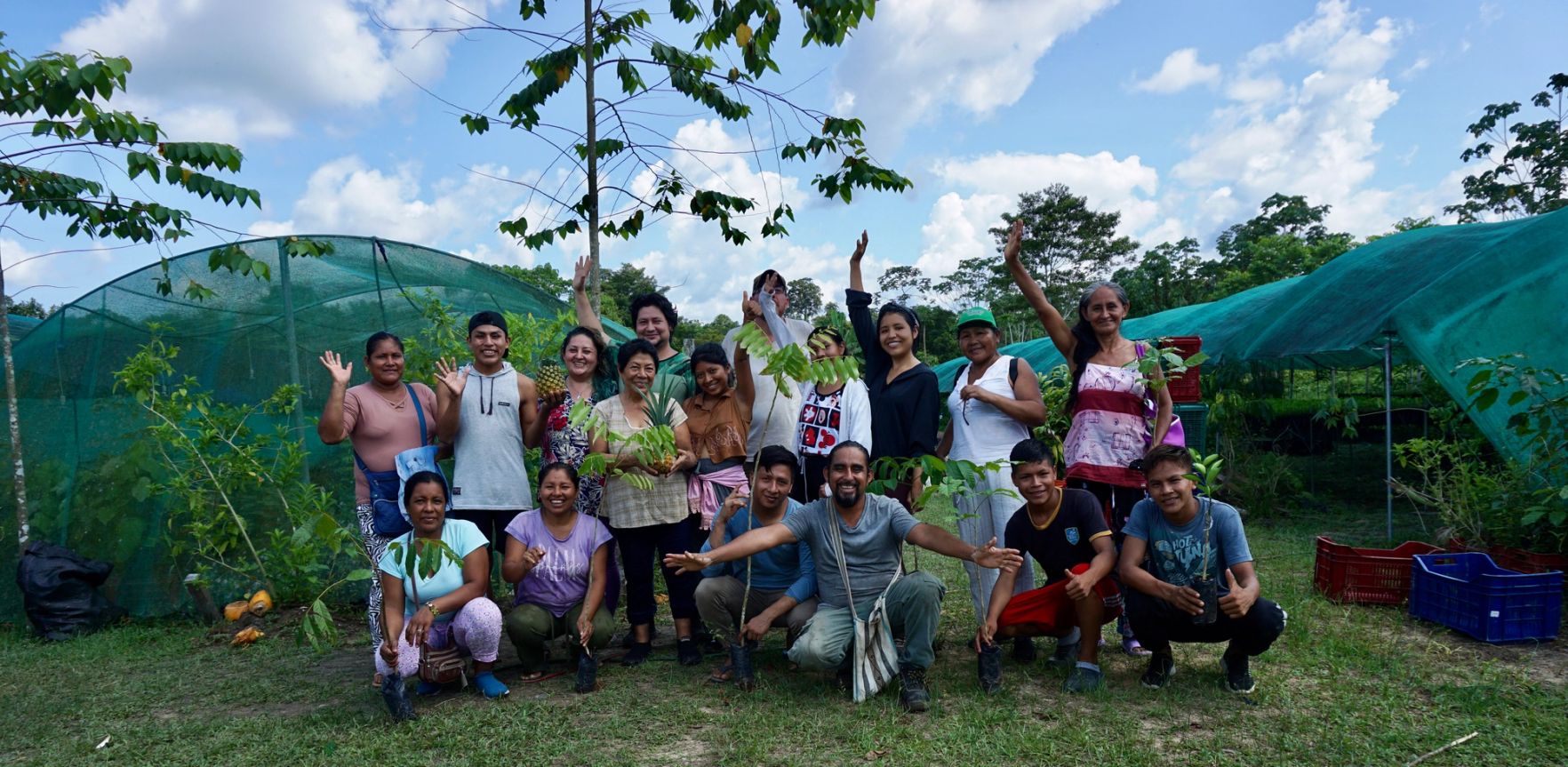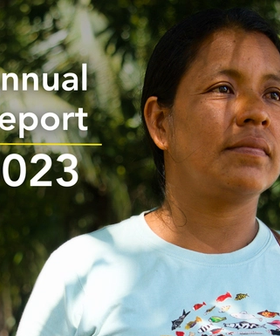2023 was a year of learning and consolidation for us and the families, indigenous students, women, leaders, friends, and like-minded organizations we are proud to collaborate with.
Over the years, we have witnessed the growth of our community. It's heartening to see more indigenous students completing their higher education, families transitioning away from slash-and-burn agriculture to embrace crop diversity, and the unwavering commitment of indigenous women to protect nature.
While challenges persist in a society that struggles to appreciate cultural diversity and understand the specific needs of Amazonian peoples, we remain confident that by working hand in hand with Amazonian communities and our allies, we will continue to contribute to a flourishing Amazon.
With inspiring stories and impactful outcomes, our Annual Report is your invitation to join us in shaping a brighter future for the Amazon and beyond. Dive in, find inspiration, and become part of the journey towards positive change!
Letter from the Director
In our part of the world, in the heart of the world’s largest tropical rainforest, governments, regional development agencies, international institutions and NGOs alike are putting their hopes in what has become known as bioeconomy. The urgency of a greener economy is also a great chance to rethink the current economic system. In this regard, learning from the value systems of indigenous peoples, putting wellbeing at the center instead of economic growth, is a formidable opportunity.
Today, most indigenous peoples and forest communities relate to the dominant society and the market economy in some way. They all have a certain need for monetary income, usually to cover necessities such as access to health services, education, or means of transport. Lacking such essentials, forest communities are more likely to resort to activities of resource extraction to generate income, with negative consequences for the rainforest. Supporting forest communities in their quest for sustainable livelihoods is vital.
For us at Chaikuni, this does not first and foremost have to mean monetary income. In our agroforestry work we emphasize food sovereignty for the wellbeing of the family, the revalorization of traditional knowledge, and the recovery of local agrobiodiversity. But earning an income from the surplus production, the sale of valuable medicinal, fruit or timber species that were integrated in the agroforestry plot, and the transformation of produce into value-added products is also a fundamental element of our work.
We often observe that decades of largely unsuccessful state projects and interventions by private actors have led communities to expect that the state or other outsiders should “pay”, “do the project” or “give something”, installing a certain passivity in local people. But the rich traditions and knowledge of Amazonian peoples has historically equipped them to live well as part of the rainforest ecosystem. At Chaikuni, we believe that a key in any of our projects and interactions with Amazonian families is to focus on their agency, (re)empowering them, leading them to find new confidence in their knowledge systems and believing that they themselves can do the most to improve their lives, even with limited outside support.
This past year, one of the most encouraging aspects of our work has been to engage with, train and empower four Kukama women to become agroforestry promoters. Adilia, Celia, Gilda, and Juanita have blossomed in their new roles in their communities. The women have facilitated our work visits and have been the focal points for agroforestry activities in their communities, supporting several families. They also started to see the work as a small business opportunity for themselves, producing seedlings and organic fertilizers, which not only improve the productivity in their gardens and chacras, but also lets them earn a small extra income.
Throughout the following pages of this Annual Report, you may read more about the inspiring stories of the four promotaras as well as other women, young indigenous students, leaders, and Amazonian families that worked with Chaikuni in 2023.
As the interest in diverse amazonian agroforestry systems as a climate solution and source for local wellbeing is growing, along with a sense of urgency to protect the Amazon, its rivers, peoples, and rich traditions is gaining more recognition, we thank you for your continued support over the years and invite you to keep being part of the movement for a thriving Amazon and a flourishing life.
Warmly,
Stefan Kistler
Executive Director



